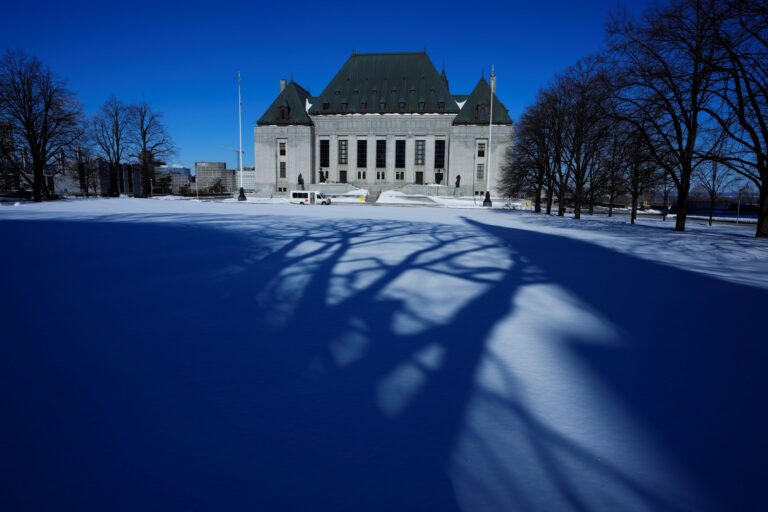(Version française disponible ici.)
Anyone who was old enough to vote on October 30, 1995, remembers these words spoken by Jacques Parizeau that evening. “It’s true that we were defeated, but by what? By money and ethnic votes.” According to the Quebec premier, immigrant votes and the considerable sums invested by the federal government were responsible for defeating the Yes side, which French-speaking Quebecers had supported by more than 60 per cent.
The reality was in fact not so cut and dried. First, in 1995, no one expected the ethnic vote to be pro-sovereignty. The surprise came instead from predominantly French-speaking regions—Beauce and Quebec City, notably, where only 44 per cent and 54 per cent voted in favour. The women’s vote, which was hardly mentioned in the aftermath of the referendum, was also a letdown.
The Yes vote lagging among women
Throughout the referendum campaign, women lagged far behind men in their support for sovereignty. With less than 30 days to go before the vote, only 38.9 per cent of women were voting Yes, compared to 52.6 per cent of men. “They don’t seem to realize that they could be responsible for the defeat of the Quebecois people,” Louise Harel said during a cabinet meeting. “They must understand that time is of the essence.”
Despite significant strategic realignments during the campaign, including the appointment of Lucien Bouchard as head of the Yes camp and the proposal for an economic partnership with Canada, women had remained unmoved while men had gradually come around. Faced with this stubborn defiance, the Yes camp realized that it needed to address women quite differently. Adopting a less “aggressive” tone wouldn’t suffice; women needed to be offered a genuine “societal project” to see what a future country could hold.
Operation Megaphone: winning over Quebec women
Starting in late September 1995, initiatives aimed directly at women multiplied – flyers, shows, dinner conferences. Under the banner “Operation Megaphone,” some 50 women traveled across the province to convince Quebec women that they had nothing to lose. Quite the contrary, they argued, the freedom they had fought so hard to achieve would be deepened in an independent Quebec.
Not only were women promised equal pay, they were assured that the new country would be built on strict equality with men. Quebec was becoming one of the few places in the world where “the co-founding of the political space by men and women” was within reach.
A surge… but no victory
The energetic feminist offensive did not quite yield the expected results, however. Although this campaign, unprecedented in Quebec’s history, undoubtedly explains the last-minute surge among women (from 38.9 per cent to 52.6 per cent, according to polls conducted in the final days of the campaign), women still lagged far behind men, at 63.5 per cent.
“If French-speaking Quebec women had supported the Yes camp as much as men did,” political scientist Guy Lachapelle wrote in a study on the distribution of votes, “it would have won and the majority would have been substantial […] at nearly 55 per cent.”
Is sovereignty gendered?
Is sovereignty a man’s game? No one, of course, would accuse women of not carrying a torch for the Quebecois nation. After all, women have long been responsible for safeguarding the French language and culture. It is on a political level that things unravel. For obvious reasons, women harbour a distrust of power, which was exercised for centuries without them. And while that traditional wariness has faded with women’s growing political influence, other misgivings — toward the sovereignty project itself — have taken root.
A recent poll is a case in point : 32 per cent of women versus 42 per cent of men would vote in favour of sovereignty today – the same 10-point gap as 30 years ago.
Two visions of independence
The reason for this ongoing gender discrepancy is simple. There have always been two distinct currents within the Quebec sovereignty movement, dual factions which I’ve baptized the Pierre Falardeaus and the Françoise Davids. Those who focus on the container versus those who focus on the content. In the first case, the important thing is to raise a fist and plant the flag; people can worry later about the kind of country they want. Unsurprisingly, this approach appeals more to men.
Quebec independence: Can the Parti Québécois turn a revival into reality?
In the second case, the focus is on what a brand new country would look like, what promises it holds. This approach appeals more to women, and for good reason. Over the last 50 years, women have not only led their own campaign for emancipation, they have succeeded where die-hard sovereigntists have failed.
Quebec’s political status has remained the same, while the status of women has changed dramatically. An independent Quebec that does not, from the outset, include a feminist and progressive perspective represents a risk that, clearly, many women are hesitant to take.
Thirty years later, the same mistrust
To think that this mistrust among women will disappear in the event of a third referendum is wishful thinking, in my opinion. Now leading in the polls, the Parti Québécois is promising another kick at the can, another referendum on Quebec sovereignty, a bold wager that has bolstered the PQ’s popularity in certain quarters. Problem is, though, Paul St-Pierre Plamondon’s Parti Québécois looks almost identical to François Legault’s Coalition Avenir Québec. There is no blueprint for a future progressive, feminist Quebec. There is nothing so far to reassure women or, even, to whet men’s appetite. After two failed referendums, it’s hard to imagine Quebecers – men or women – being tempted to take a leap into thin air.












